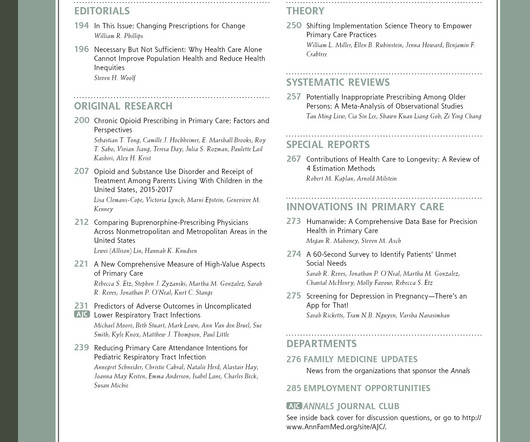Screening for Dementia: A Podcast with Anna Chodos, Joseph Gaugler and Soo Borson
GeriPal
JULY 19, 2024
Summary Transcript Summary The US Preventive Services Task Force (USPSTF) concluded back in 2000 that there is insufficient evidence to recommend for or against routine screening for dementia in older adults. If so, how do we screen and who do we screen? What should we use to screen individuals? Should it?












Let's personalize your content